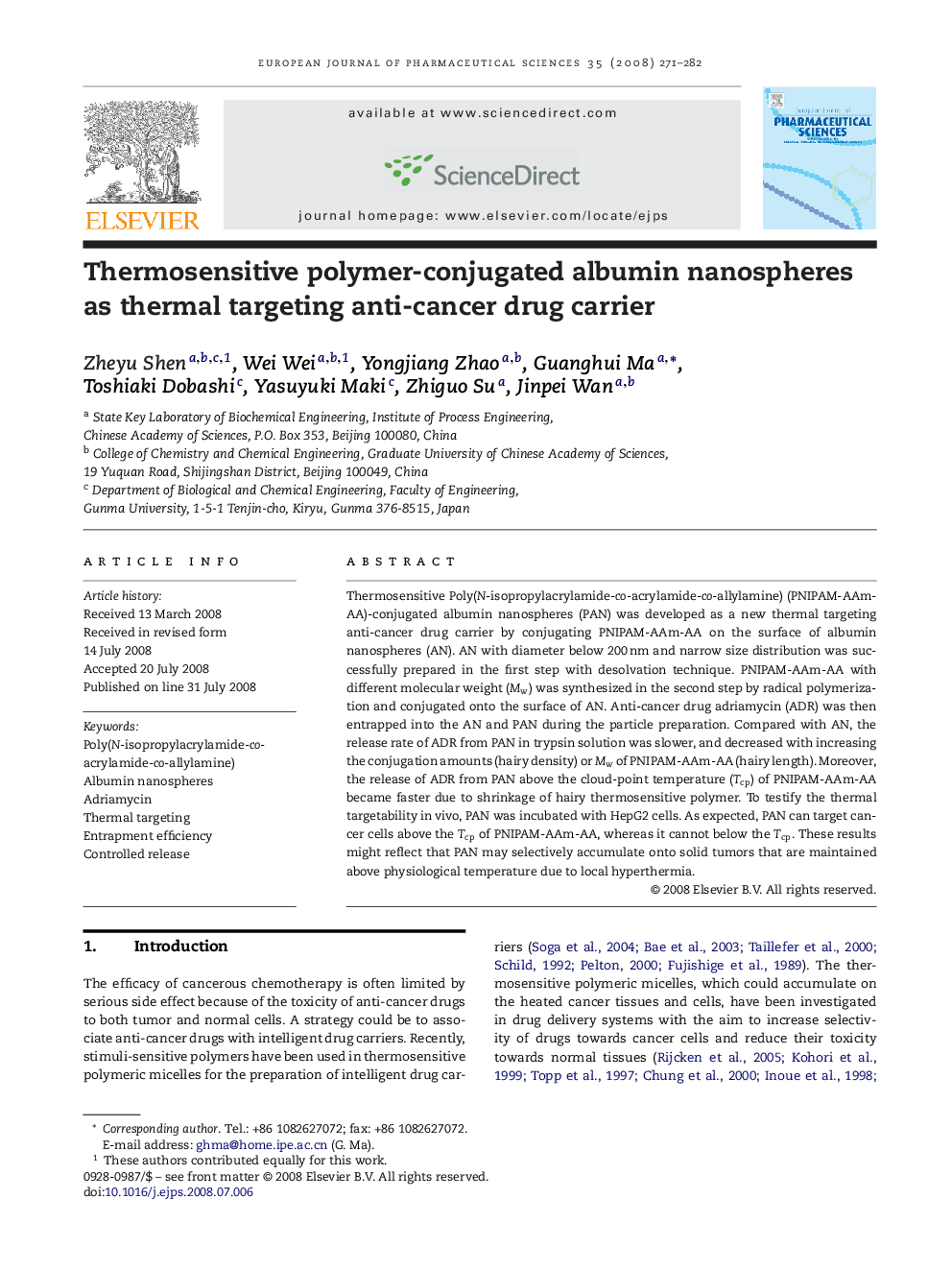| Article ID | Journal | Published Year | Pages | File Type |
|---|---|---|---|---|
| 2482391 | European Journal of Pharmaceutical Sciences | 2008 | 12 Pages |
Thermosensitive Poly(N-isopropylacrylamide-co-acrylamide-co-allylamine) (PNIPAM-AAm-AA)-conjugated albumin nanospheres (PAN) was developed as a new thermal targeting anti-cancer drug carrier by conjugating PNIPAM-AAm-AA on the surface of albumin nanospheres (AN). AN with diameter below 200 nm and narrow size distribution was successfully prepared in the first step with desolvation technique. PNIPAM-AAm-AA with different molecular weight (Mw) was synthesized in the second step by radical polymerization and conjugated onto the surface of AN. Anti-cancer drug adriamycin (ADR) was then entrapped into the AN and PAN during the particle preparation. Compared with AN, the release rate of ADR from PAN in trypsin solution was slower, and decreased with increasing the conjugation amounts (hairy density) or Mw of PNIPAM-AAm-AA (hairy length). Moreover, the release of ADR from PAN above the cloud-point temperature (Tcp) of PNIPAM-AAm-AA became faster due to shrinkage of hairy thermosensitive polymer. To testify the thermal targetability in vivo, PAN was incubated with HepG2 cells. As expected, PAN can target cancer cells above the Tcp of PNIPAM-AAm-AA, whereas it cannot below the Tcp. These results might reflect that PAN may selectively accumulate onto solid tumors that are maintained above physiological temperature due to local hyperthermia.
